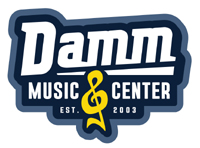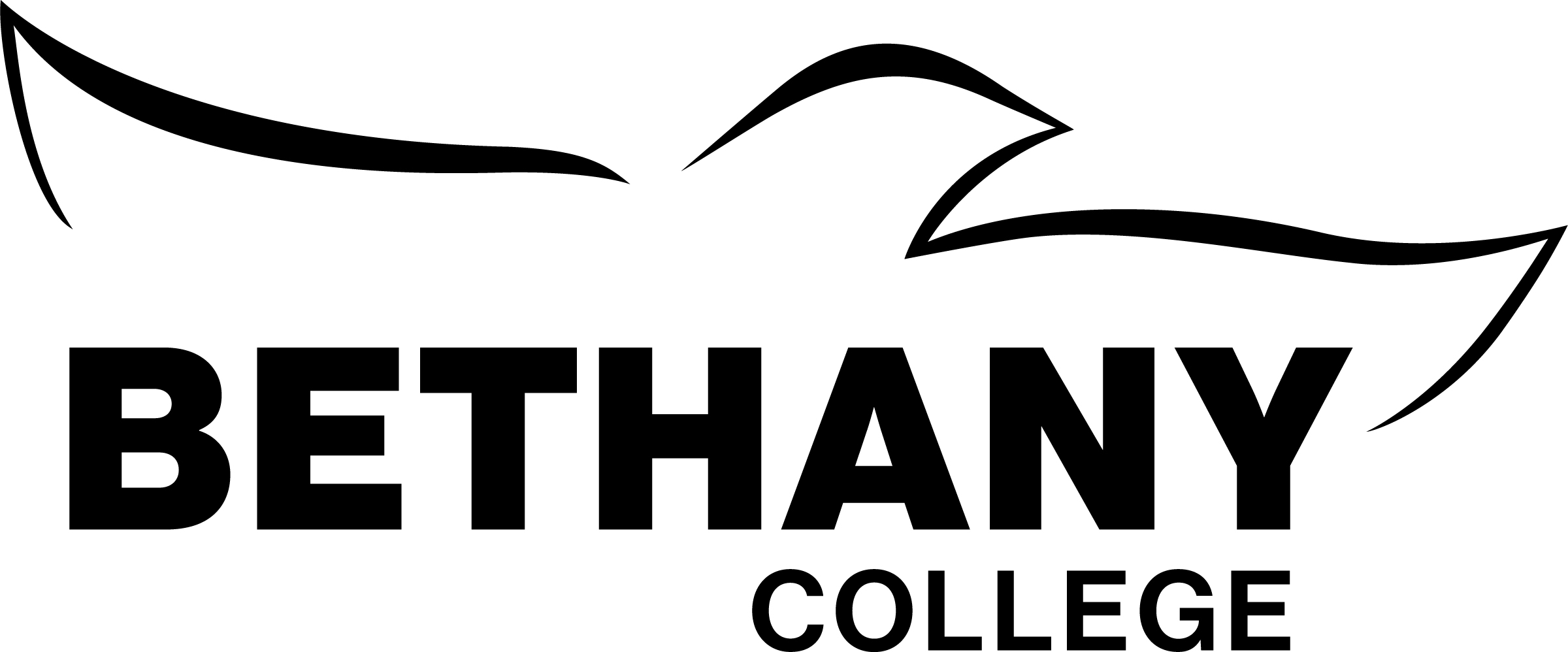by José Valentino Ruiz, Ph.D., University of Florida
Abstract
This article explores the importance of integrating entrepreneurship education into high school music programs. Traditionally, entrepreneurial skills have been reserved for higher education settings, leaving high school students without exposure to these vital skills. However, introducing entrepreneurship education early on lays a solid foundation that benefits students not only during their high school years but also as they transition to college and beyond. The article discusses how teaching entrepreneurship skills empowers students to navigate the dynamic music industry, harness the power of technology, build personal brands, and reach wider audiences. It also emphasizes the need to effectively communicate the value of learning entrepreneurship to music students and provides six key points for doing so. Additionally, the article outlines a framework for cultivating the entrepreneurial mindset in music students, including optimizing creative prowess, defining a mission, using data-informed solutions, producing impact and translatability, and fostering evaluation and assessment. Finally, a 16-week course calendar is proposed, detailing how to integrate the entrepreneurial mindset into music education. The article concludes with a SWOT analysis, highlighting the strengths, weaknesses, opportunities, and threats associated with incorporating entrepreneurship education into high school music programs. Overall, integrating entrepreneurship education in high school music education empowers students, prepares them for the music industry, and equips them with valuable skills for future success.
Keywords: entrepreneurship education, high school music students, creative expression, music industry, transferable skills, career opportunities
The Need for Entrepreneurship in High School Music Education
In the realm of music education, the significance of entrepreneurship often goes unnoticed in high school settings. As teachers, we have a unique opportunity to equip our students with not only the technical prowess to excel as musicians but also the entrepreneurial skills to thrive in the dynamic music industry. Teaching concepts like marketing, business planning, and strategy can empower our students to navigate the evolving landscape of the music world, maximizing opportunities and paving the way for their future success (Beckman, 2016).
Traditionally, entrepreneurship education has been reserved for higher education settings, leaving high school students without exposure to these vital skills (Hansen, 2017). However, during their formative years, students are most receptive to new ideas and possess boundless creativity (Nytch, 2020). Introducing entrepreneurship education early on lays a solid foundation that benefits our students not only in their high school years but also as they transition to college and beyond (Nytch, 2018). Teaching them entrepreneurship skills during high school allows them to develop a focused mindset, explore potential career paths, and seize opportunities along their musical journey (Gingerich, 2016).
Today, high school students have unprecedented access to resources and platforms that enable them to pursue their own musical enterprises (Ruiz-Resto, Lee & Shelton, 2021). The digital landscape offers avenues for self-promotion, collaboration, and distribution of their work. Instilling entrepreneurial skills empowers our students to harness the power of technology, build their personal brands, and reach wider audiences (Ruiz, Lee, & Shelton, 2021). Teaching students to navigate social media, create engaging content, and utilize online platforms opens doors to a myriad of possibilities, fostering their independence and creative expression (Gingerich, 2016).
Moreover, integrating entrepreneurship education into high school applied music lessons requires a practical and tailored approach. Music educators can incorporate discussions on entrepreneurship during class time, sharing real-world examples and exploring case studies relevant to the music industry (Hanson, 2017). Additionally, dedicating specific class sessions to entrepreneurial topics such as effectuation allows focused learning opportunities (Gangi, 2017). Engaging students in comprehensive projects, where they develop business plans, marketing strategies, and promotional materials for their musical endeavors, bridges the gap between artistic expression and entrepreneurial acumen.
Integrating entrepreneurship education early on helps our students develop a clearer sense of purpose and direction for their musical careers (Nytch, 2018). Should they choose to pursue higher education studies, students could enter college with a deeper understanding of the industry, enabling them to make informed choices and maximize their educational experiences (Brown, 2019). Moreover, entrepreneurship education equips them with transferable skills such as critical thinking, problem-solving, and adaptability, which are invaluable for success in any field (Hanson, 2017). It nurtures their creativity, self-efficacy, and resilience, empowering them to proactively shape their professional paths.
Teaching Music Students the Value of Learning Entrepreneurship
As high school music educators, it is essential to effectively communicate the value of learning entrepreneurial frameworks to our students. Below are six key points to consider when explaining the significance of entrepreneurship in their musical journeys:
- Emphasize the broader scope of entrepreneurship: Start by clarifying that entrepreneurship extends beyond starting a business. Explain that it encompasses a mindset and a set of skills that are applicable to various aspects of their musical careers, whether they become performers, educators, composers, or music industry professionals.
- Highlight the transferable skills: Help students understand that learning entrepreneurial frameworks equips them with valuable transferable skills. These skills include critical thinking, problem-solving, creativity, adaptability, effective communication, leadership, and financial literacy. Explain that these skills are highly sought after in the professional world and will benefit them not only in the music industry but also in other areas of their lives.
- Connect entrepreneurship to career opportunities: Illustrate how understanding entrepreneurship opens up a range of career opportunities within the music industry. Discuss various paths they can pursue, such as performing as a solo artist, joining a band, teaching music privately or in schools, composing for film or media, working in artist management, or starting their own music-related business. Show them that having an entrepreneurial mindset gives them the flexibility to explore and pursue diverse avenues.
- Foster a proactive and self-directed approach: Emphasize that learning about entrepreneurship encourages students to take ownership of their musical journeys. Explain that it empowers them to identify and create opportunities rather than waiting for them to come their way. Encourage students to develop a proactive and self-directed approach to their music careers, encouraging them to seek out performance opportunities, collaborate with other musicians, and actively engage with the music community.
- Cultivate resilience and adaptability: Discuss the importance of resilience and adaptability in the music industry. Explain that entrepreneurial frameworks help students develop resilience by teaching them to embrace failure as a stepping stone to success. Encourage them to see setbacks as learning opportunities and to develop the ability to adapt to changing circumstances and emerging trends in the music industry.
- Foster a creative and innovative mindset: Highlight how entrepreneurship encourages students to think outside the box and nurture their creative and innovative abilities. Discuss how entrepreneurial thinking can lead to new ways of composing music, exploring different genres, and finding unique approaches to performances and presentations. Encourage students to experiment, take risks, and push the boundaries of their musical expression.
- In effectively communicating these points to our students, music educators can inspire them to embrace entrepreneurship as an essential aspect of their musical journeys. Encourage them to see it as a tool that empowers them to navigate the music industry with confidence, resilience, and creativity, enabling them to pursue fulfilling and successful careers as musicians.
A Starting Point for Cultivating the Entrepreneurial Mindset for Music Student
As a music entrepreneurial practitioner and educator, the author has come to define entrepreneurship simply as the ‘powerful intersection of expressing creativity and seeking solutions to address a mission.’ In the context of music education, it is vital to teach students how to optimize their creative prowess to produce efficiency, excellence, and expediency (Lee & Ruiz, 2023). In guiding them to define their mission, whether it’s reaching a specific target audience, serving an organization, or accomplishing a goal that improves the quality of life through the service or product of music, students can develop a deep understanding of the needs of their intended audience or organization.
Optimizing Creative Prowess
To cultivate an entrepreneurial mindset, students must learn to think strategically about how they can harness their creative abilities effectively. This involves encouraging them to explore various approaches to composition, performance, and expression, while also emphasizing the importance of refining their skills and techniques. Guiding students to cultivate a robust foundation in music theory, achieve proficiency in their selected instruments or voice, and grasp various musical styles and genres, enables them to unleash their creative potential in a meaningful and influential manner.
Defining the Mission
Central to entrepreneurship is having a clear mission or purpose that drives one’s creative endeavors. For music students, this mission could involve creating music that resonates with a specific target audience, serving the needs of a particular organization or community, or using music as a means to address social issues. Assisting students in shaping their mission, educators equip them to consciously select the kind of music they produce, the narratives they weave, and the influence they intend to exert. This procedure fosters the cultivation of a profound sense of intent and orientation among students, steering their creative choices and motivating them to chase genuine and purposeful artistic manifestations.
Data-Informed Solutions
An essential aspect of entrepreneurship is developing solutions that are informed by data. In the context of music, this means guiding students to collect and analyze information about their target audience, their preferences, and the specific challenges they face. Through the implementation of surveys, interviews, or market research, students can acquire invaluable insights that shape their creative determinations and assist them in customizing their music to cater to the preferences and wishes of their audience. This methodology guided by data prompts students to engage in critical thinking, utilize substantiation to back their artistic selections, and foster a more profound rapport with their listeners.
Producing Impact and Translatability
Entrepreneurial musicians understand the importance of producing music that creates impact, inspires others, and is easily translatable across different contexts. This involves teaching students to consider the emotional and cultural resonance of their music, ensuring that it resonates with their target audience and connects with people on a deep level. Additionally, students should explore ways to make their music accessible and relatable to diverse audiences, transcending language barriers and cultural boundaries. Emphasizing the significance of crafting music that carries a meaningful and enduring influence, educators motivate students to approach their craft with intention and purpose.
Evaluation and Assessment
To foster growth and improvement, students need to develop the skills to evaluate and assess the effectiveness of their creative expressions or implemented solutions. This involves providing them with tools and frameworks to critically analyze their work, seek feedback from others, and reflect on their own artistic choices. Educators should consider encouraging their students to pose queries like “Does my music proficiently convey the intended message?” or “How does my music connect with the audience?” educators foster the growth of students’ self-awareness and a commitment to ongoing enhancement. educators help students develop a sense of self-awareness and continuous improvement. This evaluative process empowers students to refine their artistic expressions, make informed decisions, and strive for excellence in their creative pursuits. Integrating these entrepreneurial aspects into weekly assignments over the duration of a semester, music educators will enable students to perceive themselves as entrepreneurial musicians, prepared to create an impact through their creative manifestations and inventive solutions. This mindset not only prepares them for success in the music industry but also equips them with valuable skills and perspectives that extend beyond the realm of music, empowering them to navigate the challenges of an ever-changing world.
Designing a 16-Week Course Calendar for Integrating
Entrepreneurial Mindset in Music Education
When it comes to cultivating an entrepreneurial mindset in high school music students, a well-designed course calendar can provide a structured and progressive learning experience. Strategically incorporating key concepts and activities throughout the semester can help music educators guide students on a journey of self-discovery, creative exploration, and problem-solving. Here’s a suggested 16-week course calendar that integrates the entrepreneurial mindset into music education:
Week 1-2: Introduction to Entrepreneurship in Music
- Define entrepreneurship as the intersection of creativity and problem-solving.
- Discuss the importance of an entrepreneurial mindset in the music industry.
- Introduce students to the concept of optimizing creative prowess and setting a mission.
Week 3-4: Exploring Musical Styles and Genres
- Explore a range of musical styles and genres.
- Encourage students to analyze the target audience and mission of each style.
- Discuss how different musical choices can impact listeners and resonate with specific audiences.
Week 5-6: Defining the Mission
- Guide students in defining their personal mission in music.
- Help them identify their target audience, organization, or community.
- Emphasize the importance of aligning their creative expressions with their mission.
Week 7-8: Data Collection and Analysis
- Teach students methods for collecting data about their target audience.
- Explore surveys, interviews, or market research techniques.
- Analyze and interpret the collected data to inform creative decisions.
Week 9-10: Creative Projects and Problem-Solving
- Assign students to work on individual or collaborative creative projects.
- Encourage them to incorporate their mission, target audience insights, and data analysis into their projects.
- Guide students in identifying and addressing challenges or problems through their creative solutions.
Week 11-12: Impact and Translatability
- Discuss the concepts of impact, inspiration, and translatability in music.
- Explore how music can connect with emotions, cultures, and diverse audiences.
- Guide students in creating music that resonates and transcends boundaries.
Week 13-14: Evaluation and Feedback
- Teach students how to evaluate and assess the effectiveness of their creative expressions.
- Provide frameworks for self-reflection and peer feedback.
- Encourage students to refine their work based on feedback and self-assessment.
Week 15-16: Presentation and Reflection
- Provide opportunities for students to showcase their creative projects to their peers, parents, or the wider community.
- Foster a supportive and inclusive environment for sharing and celebrating student achievements.
- Reflect on the journey of cultivating an entrepreneurial mindset in music and discuss future goals and aspirations.
SWOT Analysis of The Need for Entrepreneurship in High School Music Education
Throughout the semester, educators should incorporate a combination of classroom discussions, individual and group projects, guest speakers, and real-world experiences to enhance student learning and engagement. Additionally, students should be encouraged to document their creative process, reflect on their experiences, and maintain a portfolio of their work.
In this analysis, I will examine the strengths, weaknesses, opportunities, and threats associated with the proposal of integrating entrepreneurship into high school music education. By conducting a thorough SWOT analysis, we can gain a comprehensive understanding of the potential benefits and challenges of this initiative. I will explore the empowering aspects of entrepreneurship education, its relevance to the music industry, and the opportunities it presents for early exposure and career readiness. Additionally, I will address potential weaknesses such as limited curriculum space and the need for teacher training. Finally, I will discuss the potential threats, including resistance to change and limited resources. Through this analysis, we will gain valuable insights into the feasibility and potential impact of incorporating entrepreneurship into high school music education.
Strengths
- Empowering students: Integrating entrepreneurship in high school music education empowers students by equipping them with valuable skills and mindsets that can benefit them throughout their lives. It fosters a proactive, self-directed approach to their musical careers, cultivating resilience, adaptability, and creativity.
- Relevance to the music industry: Teaching entrepreneurship in high school prepares students for the realities of the music industry. It helps them understand the broader scope of entrepreneurship beyond starting a business and highlights the transferable skills applicable to various music-related careers.
- Access to resources and platforms: High school students have unprecedented access to resources and digital platforms that enable them to pursue their own musical enterprises. Integrating entrepreneurship education helps students navigate technology, build personal brands, and reach wider audiences.
- Tailored approach: Integrating entrepreneurship education in high school applied music lessons allows for a practical and tailored approach. Educators can incorporate discussions on entrepreneurship, share real-world examples, and engage students in comprehensive projects that bridge the gap between artistic expression and entrepreneurial acumen.
Weaknesses
- Limited curriculum space: High school curricula are often packed with essential subjects, leaving limited space for additional topics like entrepreneurship. Integrating entrepreneurship education may require reshuffling or reducing other subjects, which could be a challenge.
- Lack of teacher training: Music educators may lack training and expertise in entrepreneurship education. They might need additional professional development opportunities to effectively teach entrepreneurial concepts and guide students in developing business plans and marketing strategies.
Opportunities
- Early exposure: High school is an ideal time to introduce entrepreneurship education as students are receptive to new ideas and possess boundless creativity. Early exposure allows students to develop a focused mindset, explore potential career paths, and seize opportunities along their musical journey.
- Career readiness: Integrating entrepreneurship education in high school prepares students for higher education studies and career choices. Students can enter college with a deeper understanding of the music industry and make informed choices. It also equips them with transferable skills valuable in any field.
Threats
- Resistance to change: Integrating entrepreneurship education may face resistance from traditional education systems that prioritize traditional academic subjects over practical and entrepreneurial skills.
- Limited resources and support: Schools may face challenges in allocating resources and providing necessary support for implementing entrepreneurship education. Lack of funding, access to technology, and mentorship could hinder the successful integration of entrepreneurship education.
Overall, integrating entrepreneurship education in high school music education presents a unique opportunity to empower students and prepare them for the dynamic music industry. While there are challenges and potential barriers, the benefits of cultivating an entrepreneurial mindset outweigh the potential drawbacks. By addressing the weaknesses and capitalizing on the opportunities, schools can pave the way for a more comprehensive and relevant music education experience for students.
Conclusion
Integrating entrepreneurship education into high school music programs offers significant benefits for students. Teaching entrepreneurial skills and mindsets empowers students to navigate the evolving music industry, maximize opportunities, and pursue fulfilling careers. Early exposure to entrepreneurship helps students develop a focused mindset, explore career paths, and cultivate transferable skills applicable to any field. Emphasizing the broader scope of entrepreneurship, highlighting transferable skills, connecting entrepreneurship to career opportunities, fostering a proactive approach, cultivating resilience and adaptability, and encouraging a creative and innovative mindset effectively communicate the value of entrepreneurship to music students. A well-designed 16-week course calendar provides a structured learning experience, integrating key concepts and activities to guide students on a journey of self-discovery, creative exploration, and problem-solving. While challenges such as limited curriculum space and the need for teacher training exist, the opportunities for empowering students and preparing them for the music industry outweigh the potential drawbacks. Addressing weaknesses and capitalizing on opportunities enables schools to provide a comprehensive and relevant music education experience that equips students with the skills and mindset to thrive in their musical journeys and beyond.
References
Brown, K. L. (2019). Stewarding College Music Training in America: The Emergence of Music Entrepreneurship Education and the National Association of Schools of Music (Doctoral dissertation, University of South Carolina).
Derris Lee & José Valentino Ruiz. (2023). Association of Popular Music Education. Retrieved from https://www.popularmusiceducation.org/blog/the-idf-principle-insuring-efficiency-excellence-expedience-during-creative-production-processes/
Gangi, J. J. (2017). Towards consensus: Suggested foundational building blocks for arts entrepreneurship research and pedagogy. Artivate, 6(1), 46-62.
Gingerich, C. (2016). Possibilities, opportunities and entrepreneurship: taking creativity beyond the studio. Mtna E-journal, 8(2), 17.
Hanson, J. (2017). Exploring relationships between K–12 music educators’ demographics, perceptions of intrapreneuring, and motivation at work. Journal of Research in Music Education, 65(3), 309-327.
Nytch, J. (2018). The entrepreneurial muse: inspiring your career in classical music. Oxford University Press.
Nytch, J. (2020). The Many Facets of Music Entrepreneurship Education. Journal of Arts Entrepreneurship Education, 2(1), 3.
Ruiz-Resto, J. V., Lee, D., & Shelton, C. (2021). Entrepreneurial Responses to the COVID Era: A Qualitative Study of Five Professional Music Entrepreneurs. Journal of Arts Entrepreneurship Education, 3(2), 4.
About the Author

Dr. José Valentino Ruiz is a prominent figure in arts entrepreneurship, recognized as a versatile instrumentalist, composer, producer, engineer, arts enterprise leader, and educator. He has earned notable achievements, including 15 Global Music® Awards, 53 Downbeat Music® Awards, four Latin GRAMMY® Awards, and two Latin GRAMMY® Award nominations. He also earned an EMMY® Award, acknowledgments from Inc. Magazine as Best in Business® and Power Partner®, as well as Fast Company’s 2022 Top 10 Most Innovative Company in the World® recognition. In the field of education, Dr. Ruiz serves as the Director of the Commission of Entrepreneurship & Leadership at the Global Institute for Music Research, contributes as a Co-Editor for Artivate: A Journal of Entrepreneurship in the Arts, and is the Founder & Program Director of Music Business & Entrepreneurship at the University of Florida. On the private front, he’s the Founder & CEO of JV Music Enterprises and serves as the Resident Media Composer at Hayden5. Dr. Ruiz’s impact is seen through his involvement in producing over 140 albums, headlining more than 1400 concerts, and coordinating over 40 non-profit mission trips. His educational journey encompasses a Bachelor of Arts in Music Studies, a Master in Music in Instrumental Performance, a Doctor of Ministry in Global Outreach and Missiology, and a Doctor of Philosophy in Music Education. For further information, visit his website: www.josevalentino.com.


















